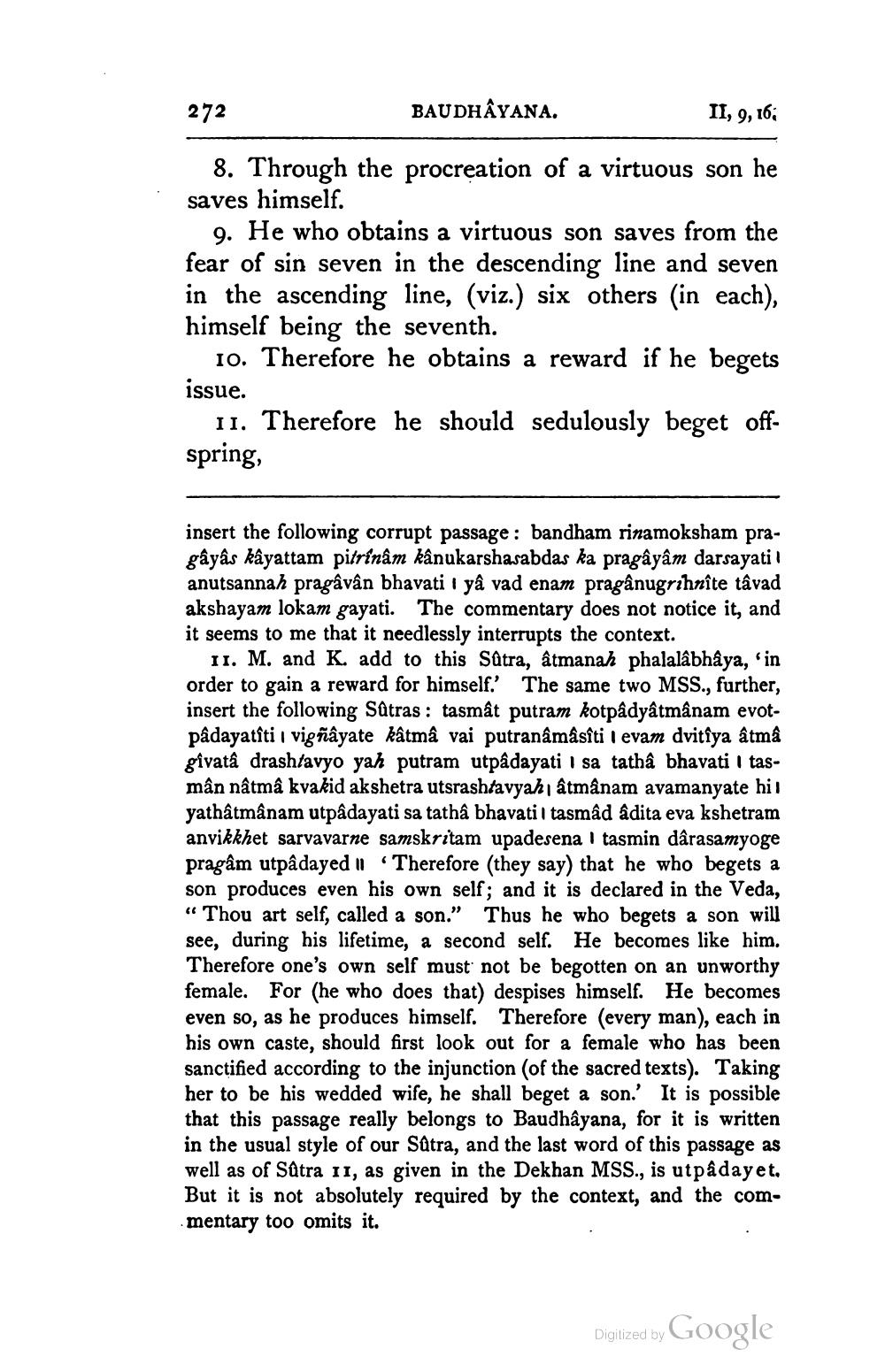________________
272
BAUDHAYANA.
II, 9, 16,
8. Through the procreation of a virtuous son he saves himself.
9. He who obtains a virtuous son saves from the fear of sin seven in the descending line and seven in the ascending line, (viz.) six others in each), himself being the seventh.
10. Therefore he obtains a reward if he begets issue.
11. Therefore he should sedulously beget offspring,
insert the following corrupt passage : bandham rinamoksham pragâyâs kâyattam pitrinâm kânukarshasabdas ka pragâyâm darsayati anutsannah pragâvân bhavati i yâ vad enam pragânugrihnite tavad akshayam lokam gayati. The commentary does not notice it, and it seems to me that it needlessly interrupts the context.
11. M. and K. add to this Satra, âtmanah phalalábhảya, 'in order to gain a reward for himself.' The same two MSS., further, insert the following Sûtras : tasmât putram kotpadyâtmânam evotpâdayatîti i vigñâyate kâtmâ vai putranâmâsîti i evam dvitîya âtmâ givatâ drashtavyo yah putram utpâdayati i sa tatha bhavati i tasmân nâtmâ kvakid akshetra utsrashtavyah, atmânam avamanyate hii yathâtmânam utpadayati sa tatha bhavati i tasmâd adita eva kshetram anvikkhet sarvavarne samskritam upadesena | tasmin darasamyoge pragâm utpâdayed II Therefore they say) that he who begets a son produces even his own self; and it is declared in the Veda, “ Thou art self, called a son." Thus he who begets a son will see, during his lifetime, a second self. He becomes like him. Therefore one's own self must not be begotten on an unworthy female. For (he who does that despises himself. He becomes even so, as he produces himself. Therefore (every man), each in his own caste, should first look out for a female who has been sanctified according to the injunction (of the sacred texts). Taking her to be his wedded wife, he shall beget a son.' It is possible that this passage really belongs to Baudhầyana, for it is written in the usual style of our Sætra, and the last word of this passage as well as of Sūtra 11, as given in the Dekhan MSS., is utpådayet, But it is not absolutely required by the context, and the commentary too omits it.
Digitized by Google




